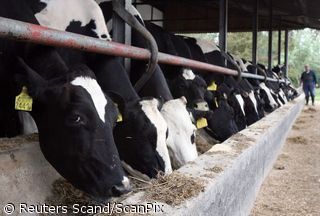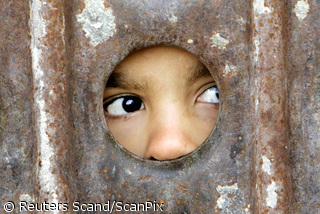Millions of Russian-speaking former citizens of the Soviet Union play a key part in the Russian economy by sending billions of rubles back to their own republics while they work in Russia
Published:
25 March 2003 y., Tuesday
Some of the workers build dachas in the Moscow region, while others drive trolleybuses in Moscow, sell vegetables in open markets or bring in the harvest in agricultural regions.
For the many families of these laborers, the paychecks are their key to survival. About a quarter of the households in Armenia and Azerbaijan are dependent on transfers from family members working in Russia, said Zhanna Zaionchkovskaya, head of the Academy of Sciences' Center for Migration Studies.
Families in other republics, including Georgia, Ukraine, Moldova and Tajikistan, also count on the money, but there are no reliable figures on the amounts involved, she said.
Nationalities Minister Vladimir Zorin said last year that 2 million Armenian and 1.5 million Azeri migrants are in Russia, while the next-largest groups are from Ukraine, Moldova and Tajikistan.
But most of the migrants are not registered in Russia, leaving them open to exploitation and extortion from employers and law-enforcement agencies.
Many of the workers are ethnic Russians unable to get citizenship since the government made it more difficult last year. Many have been living and working in the country for years. The law on foreigners, introduced in November, is intended to either legalize these workers or kick them out.
Šaltinis:
themoscowtimes.com
Copying, publishing, announcing any information from the News.lt portal without written permission of News.lt editorial office is prohibited.
The most popular articles
 In the final session of the February plenary MEPs gathered to discuss the issue of correct labelling for animal feeds. BSE, CJD and 'mad cow' disease stemmed directly from using contaminated animal feeds leading to widespread culls and fear of the unknown.
more »
In the final session of the February plenary MEPs gathered to discuss the issue of correct labelling for animal feeds. BSE, CJD and 'mad cow' disease stemmed directly from using contaminated animal feeds leading to widespread culls and fear of the unknown.
more »
 Officials of Australia are warning residents of country's second largest state to keep an eye out for crocs and other animals roaming the area.
more »
Officials of Australia are warning residents of country's second largest state to keep an eye out for crocs and other animals roaming the area.
more »
 MEPs believe “the right to speak and to be educated in one's mother tongue is one of the most basic fundamental rights” and on Tuesday Hungarian Socialist Csaba Tabajdi and five other MEPs grilled the Commission on its plans to protect traditional national, ethnic and immigrant minorities in Europe.
more »
MEPs believe “the right to speak and to be educated in one's mother tongue is one of the most basic fundamental rights” and on Tuesday Hungarian Socialist Csaba Tabajdi and five other MEPs grilled the Commission on its plans to protect traditional national, ethnic and immigrant minorities in Europe.
more »
 Thirteen thousand people from as far as Japan gathered in western Pennsylvania to see if spring will come early.
more »
Thirteen thousand people from as far as Japan gathered in western Pennsylvania to see if spring will come early.
more »
 The self-described "mom-in-chief," First Lady Michelle Obama, took to the podium at the U.S. Department of Education.
more »
The self-described "mom-in-chief," First Lady Michelle Obama, took to the podium at the U.S. Department of Education.
more »
 Most Europeans are unhappy with the bus and train services in their cities, and a large percentage complain about their power companies and banks, an EU survey shows.
more »
Most Europeans are unhappy with the bus and train services in their cities, and a large percentage complain about their power companies and banks, an EU survey shows.
more »
 Thousands turned out in Moscow for the enthronement of the Russian Orthodox Church's - the world's second-biggest Church - new leader.
more »
Thousands turned out in Moscow for the enthronement of the Russian Orthodox Church's - the world's second-biggest Church - new leader.
more »
 India‘s slum dwellers are taken to the streets in protest at the name of the Oscar-nominated film "Slumdog Millionaire."
more »
India‘s slum dwellers are taken to the streets in protest at the name of the Oscar-nominated film "Slumdog Millionaire."
more »
 Chris Ogle bought a second hand MP3 player in America for just 10 dollars and back home in New Zealand he found it contained 60 confidential US military files.
more »
Chris Ogle bought a second hand MP3 player in America for just 10 dollars and back home in New Zealand he found it contained 60 confidential US military files.
more »
 European Commissioner for Development and Humanitarian Aid, Louis Michel, announced the planned funding as he visited the Middle East region on a two-day humanitarian mission.
more »
European Commissioner for Development and Humanitarian Aid, Louis Michel, announced the planned funding as he visited the Middle East region on a two-day humanitarian mission.
more »